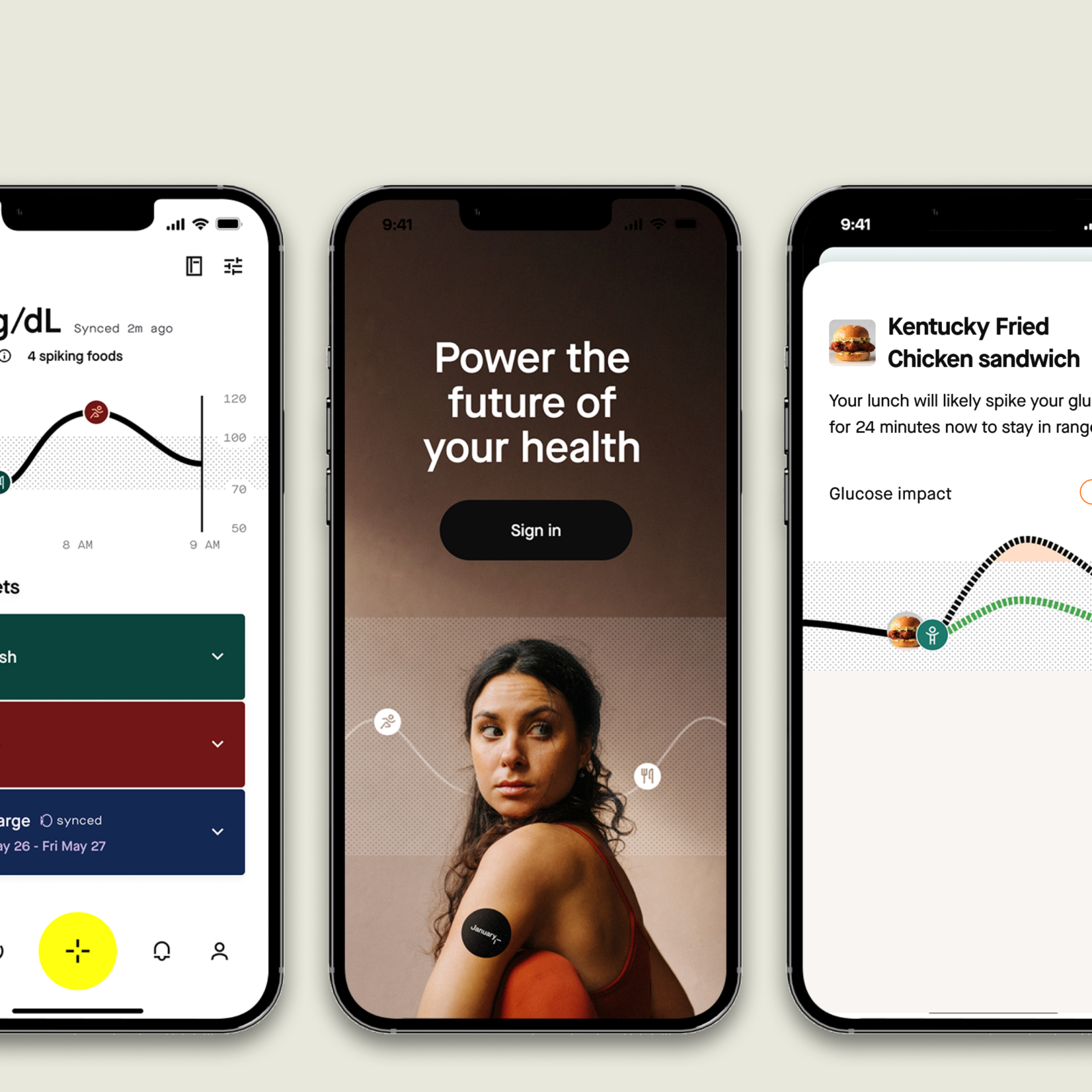The Future of Nutrition? January AI Launches App That Predicts Blood Sugar Response

Thanks to AI, consumers can now discover the metabolic response of food choices before even taking a bite
January AI, a health tech company, has introduced a generative AI-enabled app that evaluates and predicts glucose response to 32 million foods, even when members are not wearing a continuous glucose monitor (CGM).
While monitoring CGM was once reserved mainly for those with diabetes, ongoing research shows managing blood sugar is elemental to good health and correlates to weight, cholesterol, and inflammation.
January’s app allows everyday consumers to see the data and impact of food choices ahead of time.
The system, $288 for the first month and then $28 after, allows consumers uncover the complexities of their health data and arm them with information to help them on their journey to health.
The goal of January AI is to support a healthier lifestyle by going beyond glucose prediction and into behavior-shifting, which the tech health company says includes intermittent fasting, increasing fiber consumption, aligning calorie intake with activity level, getting post-meal movement and reducing glucose-spiking foods.
“Think of it as a weather report. If it only told you it’s already raining, you wouldn’t find it very useful,” said Noosheen Hashemi, who co-founded the health tech company in 2016 with Stanford University’s Director of Genomics, Dr. Michael Snyder, Ph.D.
January members will enter foods they are considering eating into the app, and the predictive AI model will tell them what the food will do to their blood sugar levels, offering a sneak peek at what may happen if indulging in a snack.
The health tech company says members will be able to see the predicted glucose curve projected up to two hours into the future.
“It helps them make better decisions about what they’re about to put into their body, kind of like having an AI nutritionist in your pocket to let you know whether you should order a smoothie or an arugula salad, and what happens if you take a 25-minute walk afterwards,” added Hashemi.
The AI-powered app comes at a time when obesity rates are climbing and also at a pivotal moment when consumers are becoming increasingly interested in health and nutrition, which many experts suggest is a result of the pandemic.
“The metabolic crisis is far more prevalent as an endemic than COVID was as a pandemic,” Dr. Snyder said in a recent interview. “Getting glucose under control is a big, big deal. Nearly 100 million people are walking around with prediabetes, and 90% don’t even know it. If we don’t measure people’s health, does it mean they’re healthy?”
January also can also integrate data from other wellness partners, such as Oura Ring, Apple Health and Fitbit, further analyzing health data to provide valuable insights and recommendations for users.
The app tracks post-meal activity to nudge members to move immediately after eating, which is shown to help lower blood sugar. On the nutrition side, it will provide macros, track fiber intake and give daily reminders so members stay on track to reach their health goals.
The health benefits can even promote improved sleep habits, which resonated with Tom Hale, Oura CEO. Oura recently acquired a digital ID startup to carve out its own tech advancements with its wearable ring.
“We are excited to work with companies like January AI to provide sleep insights to their members,” Hale said. “January’s last-meal-sleep-gap helps members gain awareness about how their mealtime choices can affect the quality of their sleep.”
Consumers complete a brief telehealth evaluation to receive a CGM prescription, and once approved, January will deliver the CGM. After the January AI app is downloaded and has enough data to obtain a health baseline, which takes a week, its AI algorithms kick in and provide actionable insights. After two weeks, the platform no longer requires a CGM to display glucose curves, insights and predictions.



